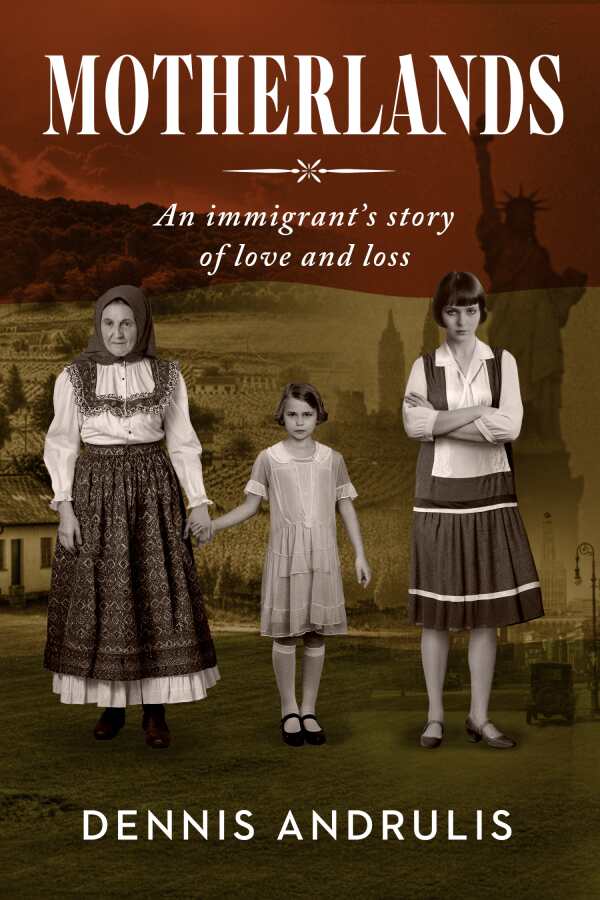Motherlands
A troubled mother-daughter relationship is at the center of the detailed historical novel Motherlands.
A Hungarian girl travels to the US to reunite with her mysterious mother in Dennis Andrulis’s historical novel Motherlands.
In turn-of-the-century Hungary, Ilushka raises two sons and a daughter, Mary, on land owned by wealthy Jewish people. Their feudal peasant life is anathema to Mary, who longs to live like the lords in the manor houses she works in as a servant. When Mary falls in love with the married Jewish property manager, she senses a way out.
The illicit love affair draws the stares and whispers of the Catholic community, though, as does Mary’s unplanned pregnancy. Mary gives birth to Irene but leaves her care and nurturing to Ilushka, announcing her departure for America. Irene’s first twelve years are thus spent with her grandmother, the woman who loves her best.
As Irene grows up, she questions her mother’s absence in her life. Then Mary sends for Irene, whose desire to meet her mother tempers her harrowing separation from her grandmother. The mother-daughter reunion is difficult, and Irene receives too little affection from Mary. However, she also finds promise in the opportunities for education and advancement she finds in the US.
Irene is a thoughtful narrator whose language is poetic. She observes generational trauma within mother-daughter relationships with acuity, and she fleshes out old-world Hungary with affection, in terms of pleasant patterns of living and working on a farm and of the caring community around her. Still, the book’s pace is quite slow in the years leading up to Mary’s departure, with spots of outside excitement represented more by historical changes than family ones, as when World War I brings a shifting mélange of soldiers to Hungary.
The narrative’s sense of direction is best established once Irene turns twelve and goes across the Atlantic to join Mary, leaving behind the only home she has ever known. Even still, its momentum is frustrated by Irene’s habit of bowing to Mary’s authoritarian behavior. The younger’s thoughts, feelings, and hopes for herself are centered; she finds escape and succor in education, books, and dreams of becoming a physiologist. In comparison, Mary is insufficiently fleshed out; she exists as a seething cipher whose anger over her past can never be resolved.
The novel progresses toward Irene’s college years, by which time the threat of another world war looms. She also witnesses rising antisemitism on campus and speaks out against it. At times, though, her language is too formal; she is prone to pontificating in her exchanges with friends, professors, and her mother.
Motherlands is an immersive historical novel in which an immigrant struggles to escape the toxic bonds of matrilineal dysfunction.
Reviewed by
Peggy Kurkowski
Disclosure: This article is not an endorsement, but a review. The publisher of this book provided free copies of the book and paid a small fee to have their book reviewed by a professional reviewer. Foreword Reviews and Clarion Reviews make no guarantee that the publisher will receive a positive review. Foreword Magazine, Inc. is disclosing this in accordance with the Federal Trade Commission’s 16 CFR, Part 255.

